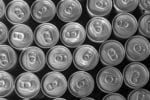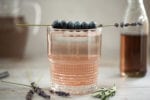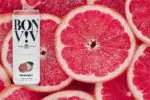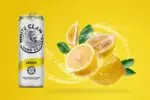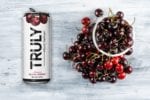The Big Soda-Alcohol Controversy
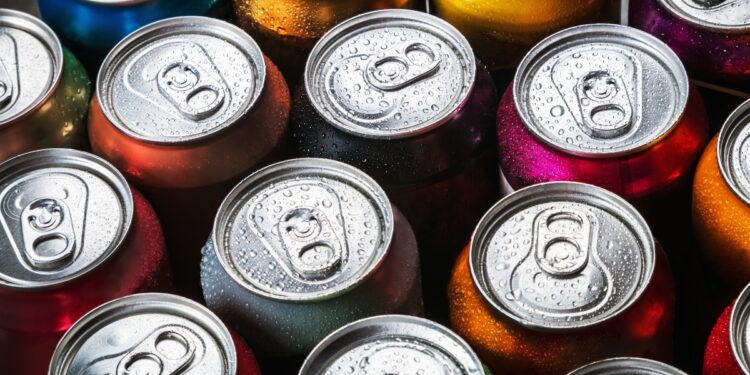
The Big Soda-Alcohol Controversy
Kelly Montgomery, a thirteen-year-old Floridian girl, was sitting in class beside her close girlfriend, Tamira. Tamira was sipping on an Arizona Iced Tea, and Kelly asked for a sip. As soon as Kelly took that sip, she was ready to spit it out. The drink tasted wrong. The kids examined the can and noticed that the drink label read Arizona Hard Iced Tea. Tamira had already consumed half of the can.
The kids were in a conundrum. Their teacher was eyeing them, they were drawing attention from the students around them, and they were at risk of getting caught drinking alcohol. What teacher was going to believe that the pair of thirteen-year-olds were accidentally drinking booze in class?
In the end, the two girls conducted James-Bond-level sneak moves to get rid of the can undetected.
This is a true story and not an uncommon one (the names are changed for the minors’ protection). At this point, many of us have a family member or friend whose child has tried alcohol accidentally. They pop into the fridge, see a familiar product, and open the can. With big soda brands releasing alcoholic versions of their popular drinks, controversy is brewing in the world of alcoholic beverages, and with every new product release, that controversy is ready to bubble over.
What is the Big Soda-Alcohol Controversy?
The controversy involving Big Soda’s move into the alcohol industry has been buzzing on social media for months now and is just starting to emerge in the press. The New York Times did a piece in late February 2023 titled “Big Soda’s Alcohol Drinks Worry Health Experts.” In the early months of 2023, local and national news stations as well as alcohol industry, marketing, and law publications, have all raised the issue: should we be concerned about popular soda brands releasing alcoholic versions of their drinks? Is there a health concern? Is there an ethical concern?
SunnyD and Other Historically Youth-Targeted Brands Enter the Alcohol Beverage Industry
The growing concerns came to a head with the March 2023 release of SunnyD Vodka Seltzer. As soon as the news of the iconic child’s drink releasing an alcoholic version hit news feeds, criticism came rolling in. “Taking a popular kids’ drink — that is still on the market — and creating a booze version is one of the most jacked up and irresponsible things I’ve seen in a while. SunnyD Vodka Seltzer is the epitome of normalizing teen drinking,” writes one Linkedin user.
On the FAQ page on the SunnyD Vodka Seltzer website, the brand counters the idea that SunnyD is only a brand for kids. Under the question “Isn’t SunnyD a kid’s drink?”, the brand explains: SunnyD Vodka Seltzer was developed specifically for adults 21+ who love the bold one-of-a-kind orange flavor of SunnyD and who also enjoy cocktails. We are committed to responsible practices, and our marketing is directed to consumers of legal drinking age. Our cans and outer packaging make it explicitly clear that SunnyD Vodka Seltzer contains alcohol, with a disclosure that is can’t-miss at the top of every can. In the home, we encourage all to safeguard all alcoholic beverages and keep out of the reach of children.”
This brings into question how much responsibility is on a brand to distinguish its new line of alcoholic products from the original non-alcoholic version. Does some of the responsibility rest on the parents to communicate which drinks in the fridge are alcoholic to prevent brand confusion? If a drink has the branding and naming convention of a child’s favorite drink, can a child distinguish if it contains alcohol?
Can a Child or Teen Distinguish an Alcoholic Brand from a Non-Alcoholic Brand?
This isn’t a new question. In fact, in 1991, the Surgeon General conducted a study of students from the 7th-12th grade “to determine their knowledge about alcoholic and non-alcoholic beverages.” The study found that “two out of three students cannot distinguish alcoholic beverages from non-alcoholic beverages.”
In the United States of America, regulations surrounding advertising to underage drinkers are largely voluntary and self-regulated. Most of these regulations are in place to discourage underage drinking. Commercials for alcohol can only play during programs with an expected 70% or greater audience that is overage. However, popular soda brands coming out with alcoholic versions of products is a relatively new issue with arguably little regulation. Especially when you take into account that many of these brands have marketed to youth for decades. In fact, studies have shown a correlation between soda advertising and “strong brand attachment.” Will that brand attachment entice adolescents (whether on purpose or by accident) to drink the alcoholic versions of their favorite sodas?
When discussing the new soda-alcohol crossover innovations in the alcohol industry, there is little data to draw from. In the article by The New York Times, the publication reports that the “Monitoring the Future” survey, conducted by the National Institute of Health, will ask teens about hard seltzers and ready-to-drink cocktails for the first time this year.
Criticisms from Health Experts
Many of the soda crossovers, such as Hard Mountain Dew and Monster the Beast Unleashed, have low-calorie content and zero sugar. These drinks conform to the “better for you” drink trend, which is rising in popularity with consumers.
The “better-for-you” alcoholic and non-alcoholic beverage trend is largely consumer-driven. A 2022 study by IRi concluded that “As consumers adopt healthier habits, better-for-you beverage alcohol options and alternative alcohol products continue to gain traction.” The term “better for you” here refers to drinks that contain low or no sugar and carbs, as well as drinks that contain low or no alcohol. If consumers are searching for products with low carbs and sugar and low alcohol, should alcoholic beverage brands not provide these products?
One could make the argument that health experts would prefer brands not disclose information that could lead a consumer to believe that an alcoholic drink is “better for them” in any way. The National Health Institute (NIH) pushes back at drinks marketing themselves as “better for you,” stating, “Alcoholic products marketed as better-for-you appear to rely on an illusion of healthfulness, without addressing the ingredient of most concern to health, the alcohol content.”
Regulations on the Alcohol Industry
While many regulations on the alcohol industry are self-regulated and voluntary, the federal government has strict regulations around alcohol brands marketing themselves as healthy. Any perceived health claim that could “create a misleading impression as to the effects on health of alcohol consumption” by an alcohol brand is prohibited by the Alcohol and Tobacco Tax and Trade Bureau (TTB). According to the World Health Organization (WHO), no level of alcohol is healthy, and even low or moderate drinking can lead to cancer and other health issues. Therefore, if an alcoholic beverage brand claims to contain any ingredient associated with healthy choices or ingredients, that brand will be at risk of litigation. For example, Vizzy Hard Seltzer recently agreed to settle a lawsuit for 9.5 million for “misleading” health claims because the brand advertised that its drinks contained “antioxidant vitamin C from acerola superfruit.”
Should Brands Neglect the Desires of their Consumers?
Much of the controversy surrounding Big Soda’s move into the alcohol industry arises from the sensational buzz and popularity of the new products. In fact, many brands, including SunnyD, claim that it is giving its consumers and fans exactly what they’ve been requesting for years.
“Consumers are passionate about this iconic brand, rooted in nostalgia but with a taste that resonates today,” Ilene Bergenfeld, Chief Marketing Officer, Harvest Hill Beverage Company, shared in a March 2023 press release. “Many have told us that they enjoy SunnyD as a mixer and asked for this product.”
So, the question remains, if consumers are calling for alcoholic versions of their favorite sodas, should brands not meet these demands? Should alcohol brands not give consumers “better for you” options because health experts deem drinking alcohol unquestionably unhealthy?
Want to find your perfect hard seltzer or canned cocktail? Try our Seltzer Finder! You can search by flavor, ABV, carbs, and more to discover your ideal beverage.
